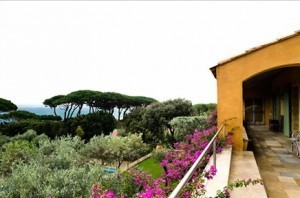Hannah Fielding's Blog, page 103
May 17, 2014
In her own words: Venetia
 Last week, I ran an ‘in his own words’ feature on Paolo, the hero of my novel The Echoes of Love, to see how he reveals aspects of his character in his speech. Today, I’m turning to the heroine, Venetia Aston-Montagu.
Last week, I ran an ‘in his own words’ feature on Paolo, the hero of my novel The Echoes of Love, to see how he reveals aspects of his character in his speech. Today, I’m turning to the heroine, Venetia Aston-Montagu.
‘I am not someone to indulge in a casual affair…’
With Venetia, there are no half-measures. She either loves, or she does not. She feels emotion so intensely that she fears falling in love, for the one and only time she did, her heart was broken – and it has never quite mended. Not for her a casual, light romance. In fact, she’s quite adamant with Paolo at the outset that she wants no relationship at all.
‘Fate is for those too weak to determine their own destiny…’
Venetia is pragmatic. She’s done with romance – she does not want to be swept away by feelings. Because she was terribly hurt as a young woman when her fiancé, Judd, left her, she very much needs to feel that she can choose her own path in life; she needs to feel in control. Fate is part of the fairytale, and she wants nothing to do with that: she wants a quiet, simple life in which she builds her career and hides away her heart.
‘Italy is definitely the most romantic country in the world.’
But ‘she’s done with romance’, so how can she say this? Ah, and here we have Venetia’s inner conflict revealing itself. Her mind wills her to turn her back on romance, to keep her safe from pain. But her heart… well, the heart can be treacherous in its indomitable spirit. That Venetia has left her home in England and moved to make a life for herself in Italy, which she acknowledges is the most romantic of countries, is telling. She says she has no room for romance, and yet she places herself at the very heart of it all.
‘I’m not prepared to relinquish my freedom for anything, or anybody.’
So says the woman who since the age of nineteen has been fiercely independent. Venetia has loved and lost – her fiancé and her baby – and as a means to cope she has thrown herself into her career, reading architecture at Cambridge and then taking a job in Venice as a mosaic restorer. She has built a life for herself in Venice: a nice apartment, a safe routine, friends with whom to share a coffee. But scratch the surface and one finds a woman living in denial: she is so frightened to love again. Can Paolo make Venetia understand that to love and to be loved does not have to mean ‘relinquishing her freedom’?
‘I thought I’d never love again, that I’d never trust a man enough to…’
These words encapsulate the very deepest pain in Venetia. She’s made a sensible, logical decision: don’t fall in love. To love means to trust, and to trust means to risk having your trust broken. On some level Venetia may believe that she was better to have loved and lost than never to have loved in her youth, but that does not mean she will open herself up to loss again. It’s down to Paolo to convince her that in his hands her heart is safe. But is it? Because in a story of mirages, masks and masquerade, Paolo is not what he seems…
All I want is to be in your arms, to be kissed by you, to belong to you, to become your wife…
Well, is it not a woman’s prerogative to change her mind? I will say no more, and let you read for yourself how Venetia opens her heart to Paolo…
Win with Pages of Comfort on my ‘Legendary’ Blog Tour & Very Venetian Giveaway
Please visit http://pagesofcomfort.blogspot.co.uk/2014/05/guest-postbook-tour-echoes-of-love-by.html and comment for your chance to win, and to read about the legend of the Chianti rooster…
May 15, 2014
Win with Books and Other Spells on my ‘Legendary’ Blog Tour & Very Venetian Giveaway
Please visit http://booksandotherspells.blogspot.co.uk/2014/05/blog-tour-echoes-of-love-by-hannah.html and comment for your chance to win, and to read about the legend of Beauty and the Beast…
Italian recipe: The ultimate authentic tagliatelle Bolognese
 You’ll notice I don’t entitle this blog post ‘Italian recipe: The ultimate authentic spaghetti Bolognese’. Strange, you may think – surely the world-famous and popular dish is a meat-and-tomato sauce served with spaghetti? Indeed, that is how many Italian restaurants the world over serve the dish, and yet for Bolognese purists, tagliatelle is the correct pasta type to marry with the sauce.
You’ll notice I don’t entitle this blog post ‘Italian recipe: The ultimate authentic spaghetti Bolognese’. Strange, you may think – surely the world-famous and popular dish is a meat-and-tomato sauce served with spaghetti? Indeed, that is how many Italian restaurants the world over serve the dish, and yet for Bolognese purists, tagliatelle is the correct pasta type to marry with the sauce.
And if many, many people are getting the pasta element of the dish wrong, just imagine how variations in the Bolognese sauce recipe frustrate authentic Italian chefs! ‘Bolognese is the most abused Italian dish,’ lamented one ‘Bolognese virtuoso’ from Modena to the Telegraph. In 2010, so dispirited were Bolognese purists with the state of affairs that they arranged a mass cook-a-thon: 450 chefs in Italian restaurants in 50 countries cooked Bolognese sauce from a recipe laid down by Mario Caramella (president of Gruppo Virtuale Cuochi Italiani – Virtual Group of Italian Chefs) as being the definitive Bolognese sauce.
The following is a simple version of the recipe as published in the Telegraph.
Ingredients:
2 tbsp olive oil
6 rashers of streaky ‘pancetta’ bacon, chopped
2 large onions, chopped
3 garlic cloves, crushed
2 carrots, chopped
Stick of celery
1kg/2¼lb lean minced beef
2 large glasses of red wine
2x400g cans chopped tomatoes
2 fresh or dried bay leaves
salt and freshly ground black pepper
800g-1kg/1¾-2¼lb dried tagliatelle
freshly grated parmesan cheese, to serve
1. Heat the oil in a large, heavy-based saucepan and fry the bacon until golden over a medium heat. Add the onions and garlic, frying until softened. Increase the heat and add the minced beef. Fry it until it has browned. Pour in the wine and boil until it has reduced in volume by about a third. Reduce the temperature and stir in the tomatoes and celery.
2. Cover with a lid and simmer over a gentle heat for 1-1½ hours until it’s rich and thickened, stirring occasionally.
3. Cook the tagliatelle in plenty of boiling salted water. Drain and divide between plates. Sprinkle a little parmesan over the pasta before adding a good ladleful of the sauce. Finish with a further scattering of cheese and a twist of black pepper.
Follow these tips from Mario Caramella to ensure the very best flavour:
The better the quality of the ingredients, the better the end result.
Serve within a few hours of making.
Serve your pasta al dente.
Let the dish speak for itself – don’t garnish with herbs or accompany with garlic bread.
May 13, 2014
Win with Love Romance Passion on my ‘Legendary’ Blog Tour & Very Venetian Giveaway
Please visit http://www.loveromancepassion.com/for-the-love-of-legends/ and comment for your chance to win, and to read about the legend of God’s footprint, the origin of Sardinia…
A passion for renovation
I’m commonly asked in interviews, ‘If you weren’t a writer, what would you do?’ The answer is: restoring old buildings.
For many years, restoration was my passion. I ran a business buying, restoring and selling on cottages, and both of my homes were large-scale restoration projects; they are unrecognisable now compared to when we bought them. Here’s our home in Kent, a rectory:
For me, old properties are beautiful: full of history and romance. I like to take an unloved, derelict building that was a warm and cherished home in its day and bring its back to former glory – while adding my own, modern twist.
‘Write about what you know’ is the old adage. So I could not resist bring my love for restoration to bear in The Echoes of Love. My hero, Paolo, has made his home in the Tuscan countryside in the very ultimate of ‘Grand Designs’.
The house, which has called La Torretta, was a burnt-out shell, abandoned after a great fire that killed the last owner, an adulterous opera singer. The downturn in the market coupled with rumours of hauntings meant no one had been interesting in purchasing the property, despite the price tag standing at less than a quarter of the original market value.
But then Paolo happened across the house, and in pure romantic style he fell in love with it:
One stormy afternoon, as he was driving aimlessly around the countryside, the damaged turret of the house had loomed out of the clouds in the distance like a mirage. Curious, he had gone in search of the house and had found it without great difficulty. The dwelling, which he could see had been partly destroyed by fire, was almost a ruin and was set in twenty-five hectares of untended land. The property stood in solitary desolation four miles away from the first house in Cala Piccola, and it had a large ‘For Sale’ sign posted on its rusty gates.
Undeterred by the estate agent’s negativity ‘Because it overlooks the sea, it’s been battered by the winds and the salt. Most of the walls are corroded…’), Paolo bought La Torretta without hesitation. As have I in past renovation projects, he could not help the poignant sadness of this once-beautiful house left to wrack and ruin, and he was also swept up with excitement for how he could make a sanctuary of this lonely pile of stone and tiles.
Vision is everything in renovation, and Paolo began as I always do: with defining the spirit of the place. He changed the name La Torretta to Miraggio:
… because of his first impression of the dwelling when it had appeared to him suddenly in the distance, as though suspended in the clouds; and also because the word reflected more or less the way he felt about himself in those days. He saw the opportunity as an optimistic sign – a new beginning after the bad fortune life had dealt him. He would rebuild the grand house, together with his life, which at that time seemed to Paolo a great black hole, with only the unknown to look forward to.
I think that any really successful renovation embodies something of the renovator him-/herself, and with Paolo this is certainly the case. When Venetia comes to his home, she reflects:
Miraggio was a name that suited the place well. Hanging on its narrow bluff, it almost hovered in the void like an imaginary vision. Paolo’s precarious home in the clouds seemed fitting for a man robbed of his past, a hunter of memories who, without an identity, could neither live comfortably in the present nor plan for the future.
The young woman gazed down in sheer awe at the magnificent scenery below, with the cliffs standing sentinel on each side of the cove. She felt as though, swept up by the sun and the wind above a primitive, surreal world and suspended in the air, she had left behind civilisation to embrace, for some time at least, the uncertain wildness and grandeur of Paolo’s universe.
I wonder what visitors think when they visit my homes, what they see of me. In France, the word ‘colour’ is what characterises my home, especially the gardens – and I think that is reflective of my take on life, my passion, my love for vibrancy and what is beautiful and moving in the world. Here is a picture of my French garden. No doubt you can see easily how, for me, home renovation led into writing romance. Who could not be inspired to dream surrounded by such a profusion of colour created through one’s own vision?
May 12, 2014
Win with Books by Centeno on my ‘Legendary’ Blog Tour & Very Venetian Giveaway
Please visit http://booksbycenteno.com/2014/05/12/the-echoes-of-love-very-venetian-giveaway/and comment for your chance to win, and to read about the legend of the bocolo…
May 11, 2014
Win with The Little Reader Library on my ‘Legendary’ Blog Tour & Very Venetian Giveaway
Please visit http://thelittlereaderlibrary.blogspot.co.uk/2014/05/the-echoes-of-love-hannah-fielding-blog.html and comment for your chance to win, and to read about the true sword in the stone…
In his own words: Paolo Barone
 After I published my first novel, Burning Embers, I ran interviews on my blog with the main characters, Coral and Rafe. For The Echoes of Love, I thought I’d try something a little different with ‘in their own words’ features, exploring how my characters reveal major facets of their inner worlds through their dialogue. I’m starting with the hero of the book, Paolo Barone.
After I published my first novel, Burning Embers, I ran interviews on my blog with the main characters, Coral and Rafe. For The Echoes of Love, I thought I’d try something a little different with ‘in their own words’ features, exploring how my characters reveal major facets of their inner worlds through their dialogue. I’m starting with the hero of the book, Paolo Barone.
‘It’s Fate I’m sure that brought us both here today.’
When Paolo meets Venetia, he has the strong sense of being ‘struck by destiny’. He has never met this woman before, and yet he feels he knows her and is, beyond a shadow of a doubt, meant to be with her. A man without a past (he lost his memory a decade ago), he finds comfort in the idea of fate – though until this point it has brought him only a lonely and haunted life. Now, fate has granted him a woman he ardently desires, albeit one who has been scarred by love and is too afraid and too pragmatic to pay heed to notions of destiny. Poor Paolo has his work cut out for him in convincing Venetia that their love is meant to be – but he will work very, very hard to do so because she has brought light to his murky life.
‘Just that one moment of insane beauty before they consume themselves and die… Life ought to hold that once for everyone.’
So says Paolo of a firework display celebrating the turn of the millennium. Paolo is a man who deeply appreciates beauty (see the following quotation), and recognises the wisdom of ‘’tis better to have loved and lost than never to have loved’. He is deeply emotional, and feels both joy and pain keenly – but he relishes the chance to experience euphoria even if just once, just for a moment. That ethos is what has sustained him through the long years since his accident – the pursuit of authentic feeling, which Venetia stirs within him.
‘I spend a lot of time reading about beautiful things and like to surround myself with them. Albert Einstein said: “The pursuit of beauty is a sphere of activity in which we are permitted to remain children all our lives.”’
For me, the key word here is ‘children’. There is a yearning in Paolo to experience the life he has lost – and because he is a lively, passionate man, he is sufficiently connected to his ‘inner child’ to appreciate what’s truly beautiful in the world: his rose garden, for example; a restored mosaic; Venetia, smiling at him with the soft Tuscan sunset lighting her features…
We are made by our past, and mine is gone …
Who are you when you don’t know where you’ve been? This is the question at the very centre of Paolo’s being. His past has been wiped out, and he must forge ahead in crafting a sense of identity based only on the now. Hence when he meets Venetia and is floored by a flood of intense love for her, he must make that meeting, that sensation, part of who he is now. He must have Venetia in his life. He must!
‘Hell is horrid, Paradise is splendid, there is no sentimentality here, no softening of the blows…’
Imagine losing your past; imagine the pain this must cause. Paolo says this while he and Venetia are contemplating a mosaic depicting the Last Supper: ‘on the right, the wrathful river of flames pouring over the naked, tormented damned, with worm-eaten skulls below; to the left, the faithful being ushered into heavenly paradise by beautiful angels; and the aged figures of Adam and Eve kneeling at the blowing of the last trumpet’. But he’s talking beyond the artwork at hand here – he knows only too well that ‘Hell is horrid’ – there is no sentimentality, no softness to his experience of this. And now that he has met Venetia, he has glimpsed the other side: Paradise. Inspirational to him; healing.
It’s like ripping out a part of yourself when you try not to care for someone…
Paolo loves Venetia. He recognises and accepts that soon after their first meeting. But Venetia is determined to hold him at bay: she is frightened; she is defensive. Paolo can’t bear to lose her, so he must take a long view and try to convince her over time to trust him, to trust her own heart. But Venetia will go so far as to shun Paolo when he declares his love for her, and Paolo struggles to don a mask and pretend he does not care. To do so is ‘like ripping out a part of yourself’ – he is a man who is honest about his feelings.
‘Only people who grow old in heart hear the oars’ sob as they float down the river of years.’
Although Paolo is only thirty-eight, he feels older as a consequence of the difficult journey he has taken since his accident. Venetia is his junior by eight years, but as Paolo sees it, more than years divide them: Venetia, to him, is young of heart; Paolo is not. His heart has been aged by the pain it has experienced. Where Venetia talks of the ‘mysterious music’ that gondoliers’ oars make in the lagoon, ‘tickling the water and making it laugh’, Paolo hears sobs. He is a man saddened to the core – but in Venetia, has he found his redemption?
May 9, 2014
Win today with Luxury Reading on my ‘Legendary’ Blog Tour & Very Venetian Giveaway
Please visit http://luxuryreading.com/echoesoflove/ and comment for your chance to win today, and to read about the tortured lovers of Fosdinovo Castle…











